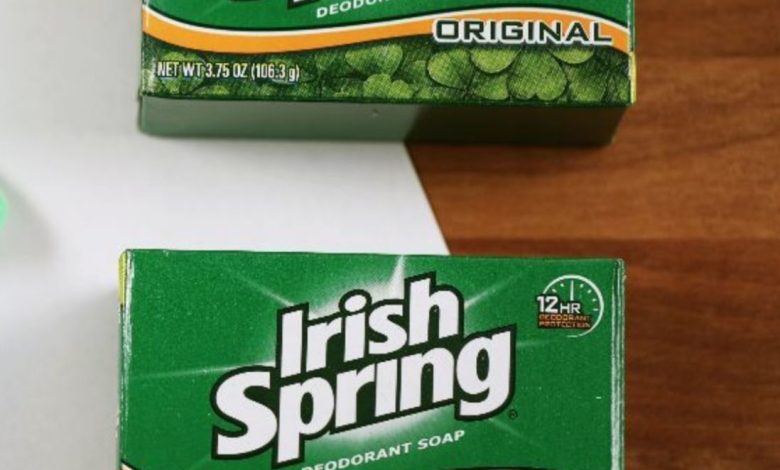The most effective ways to get rid of flies

Dealing with flies can be more than just an annoyance; it can become a real health concern. These tiny pests can spread diseases and contaminate food, making it essential to control their population in and around your home. While chemical repellents are an option, many people prefer natural and DIY methods to keep their environments safe and chemical-free. Let’s explore some of the most effective ways to get rid of flies and keep them from coming back.
ADVERTISEMENT
1. Keep it Clean
One of the most fundamental steps in fly control is maintaining cleanliness. Flies are attracted to dirt, especially if it includes food residues.
ADVERTISEMENT
- Regular Garbage Disposal: Ensure that you dispose of garbage regularly. Flies are drawn to trash, especially if it contains food scraps. Use trash cans with tight-fitting lids and empty them frequently to prevent fly infestation.
- Immediate Spill Cleanup: Any spills, especially those involving sugary substances, should be cleaned up immediately. Even small spills can attract flies, so it’s essential to keep your surfaces clean and dry.
- Kitchen Surface Maintenance: Keep your kitchen surfaces free from food residues. Wipe down counters, clean dishes promptly, and avoid leaving food out in the open. A clean kitchen is less appealing to flies and helps reduce their numbers.
2. Seal Entry Points
Flies often enter homes through small gaps and openings. Sealing these entry points can significantly reduce the number of flies that get inside.
ADVERTISEMENT
- Inspecting Doors and Windows: Regularly inspect your doors and windows for any gaps or tears. Even tiny openings can be an invitation for flies to come in.
- Repairing Tears and Gaps: Promptly repair any tears in screens and gaps around doors and windows. Use caulking to seal cracks and ensure that screens are in good condition.
- Using Weatherstripping: Weatherstripping around windows and doors can create a tight seal, preventing flies from entering your home. It’s a simple and effective way to keep your living space fly-free.
3. Install Fly Screens
Fly screens are a practical solution to keep flies out while allowing fresh air to circulate.
- Benefits of Fly Screens: Fly screens provide a physical barrier that prevents flies and other insects from entering your home. They are especially useful during the warmer months when you want to keep windows and doors open.
- Types of Fly Screens: There are various types of fly screens available, including basic mesh screens and retractable screens. Choose one that fits your needs and budget.
- Installation Tips: Ensure that your screens are properly installed and maintained. Regularly check for and repair any damage to keep them effective.
4. Natural Fly Repellents
Natural substances can be highly effective in repelling flies without the use of harsh chemicals.
- Essential Oils: Essential oils like lavender, eucalyptus, and peppermint are known for their fly-repelling properties. These oils can be used to create sprays or sachets that help keep flies at bay.
- DIY Spray Recipes: Mix a few drops of essential oils with water to create a fly-repelling spray. Spray this mixture around doorways, windows, and other areas where flies are a problem.
- Using Sachets: Place sachets filled with crushed dried mint or cloves in fly-prone areas. The strong scent of these herbs can deter flies and keep them away from your home.
5. Fly Traps and Baits
Using traps and baits can help reduce the fly population in your home and garden.
- Sticky Traps and Flypapers: Sticky traps and flypapers are effective at capturing flies. Place them in areas where flies are most active to reduce their numbers.
- Electric Fly Killers: Electric fly killers attract flies with light and then zap them. These devices can be useful in areas with high fly activity.
- Homemade Vinegar Traps: Create a homemade fly trap by filling a jar with apple cider vinegar and a few drops of dish soap. The vinegar attracts flies, and the soap reduces the surface tension, causing the flies to sink and drown.
6. The Power of Irish Spring
One surprising method to repel flies is by using Irish Spring soap.
- How Irish Spring Soap Repels Flies: The strong scent of Irish Spring soap is known to deter flies. Simply place a few bars of the soap in fly-prone areas like windowsills, doorways, and outdoor spaces.
- Placement Tips: Ensure that the soap is placed in areas where flies are most active. You can even hang shavings of the soap in mesh bags for added effectiveness.
- Effectiveness Reports: Many homeowners have reported positive results using Irish Spring soap to repel flies. While the exact reason behind its effectiveness is not fully understood, its strong scent is believed to be the key factor.
7. Plants that Repel Flies
Certain plants are natural fly repellents and can be used in and around your home.
- Basil: Basil is not only a great herb for cooking but also a natural fly repellent. Plant basil near doorways and windows to keep flies away.
- Marigold: Marigolds have a strong scent that repels flies. These bright flowers can be planted around your home to create a fly-free zone.
- Lavender: Lavender is another plant that repels flies. Its pleasant scent is effective at keeping flies away, and it can be grown both indoors and outdoors.
8. Using Fans to Deter Flies
Fans can be a simple yet effective way to keep flies at bay.
- Creating Air Flow: Flies are weak fliers and can be deterred by strong air currents. Use fans to create air flow in areas where flies are a problem.
- Placement for Maximum Effect: Place fans near doorways and windows to prevent flies from entering. Using fans in outdoor eating areas can also help keep flies away from your food.
9. DIY Fly Repellent Candles
Making your own fly repellent candles can be a fun and effective way to deter flies.
- Ingredients and Recipes: Use natural ingredients like citronella, eucalyptus, and lavender essential oils to make fly repellent candles. These candles can be used indoors and outdoors to keep flies away.
- Benefits of Natural Candles: Natural fly repellent candles are free from chemicals and safe to use around children and pets. They provide a pleasant scent while keeping flies at bay.
10. Keep Outdoor Spaces Clean
Maintaining cleanliness in outdoor spaces is crucial for fly control.
- Managing Pet Waste: Regularly clean up pet waste, as it can attract flies. Use sealed bags to dispose of waste promptly.
- Cleaning Outdoor Eating Areas: Ensure that outdoor eating areas are kept clean. Wipe down tables, dispose of food scraps, and clean up spills to prevent attracting flies.
11. Proper Food Storage
Proper food storage can help keep flies out of your home.
- Sealing Containers: Store food in sealed containers to prevent flies from accessing it. This is especially important for fruits and other perishable items.
- Refrigeration Tips: Keep perishable food items in the refrigerator. Flies are less likely to be attracted to food that is stored in a cool environment.
12. Regular Yard Maintenance
Maintaining your yard can help reduce the fly population.
- Trimming Vegetation: Trim vegetation regularly to prevent flies from breeding in overgrown areas. Keeping your yard tidy can make it less attractive to flies.
- Removing Standing Water: Eliminate standing water in your yard, as it can be a breeding ground for flies. Ensure that gutters are clean and that there are no puddles or stagnant water sources.
13. Professional Pest Control
In some cases, professional pest control may be necessary.
- When to Call Professionals: If you have a severe fly infestation that you cannot control with DIY methods, it may be time to call in professionals. Pest control experts have the tools and knowledge to deal with large infestations.
- What to Expect: Professional pest control services will assess the situation and implement effective measures to eliminate flies. They may use a combination of treatments to ensure that the infestation is completely eradicated.




